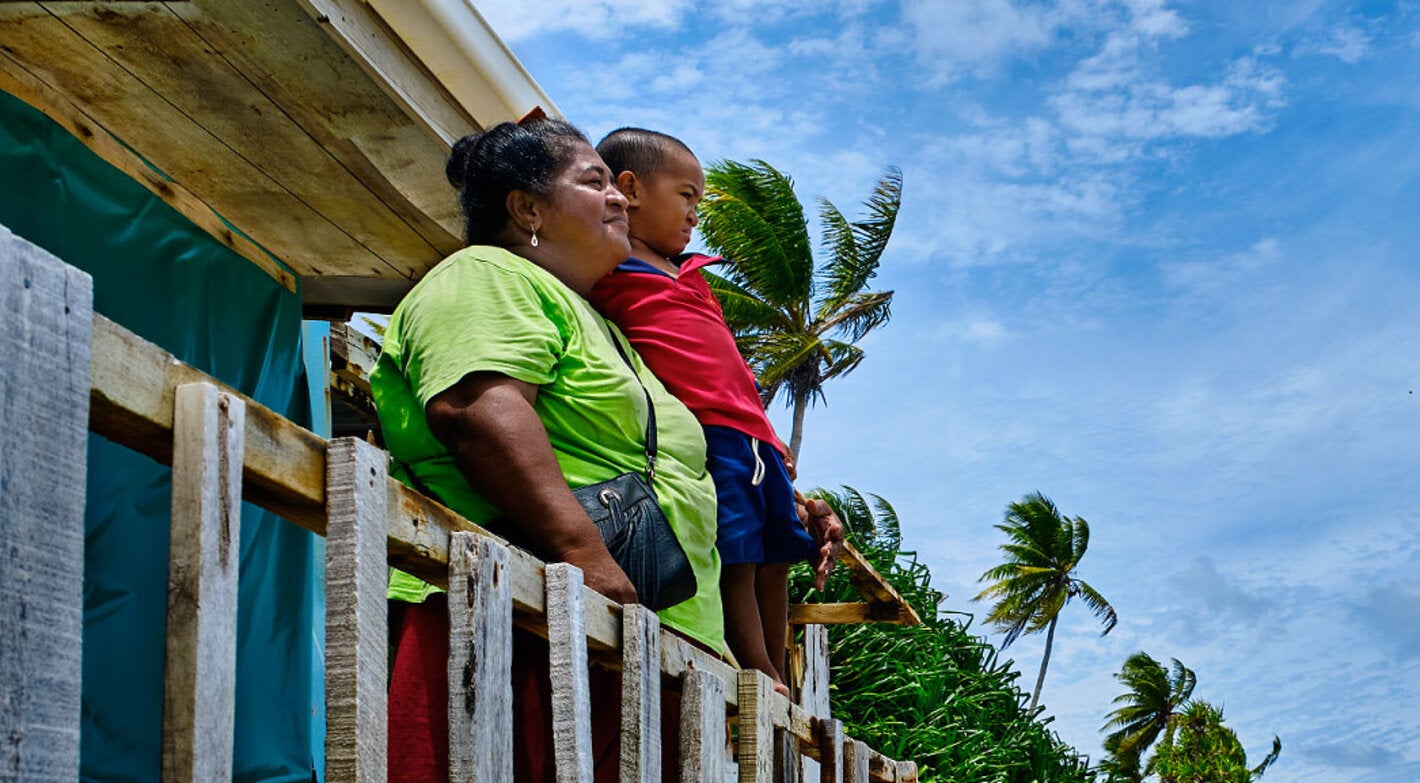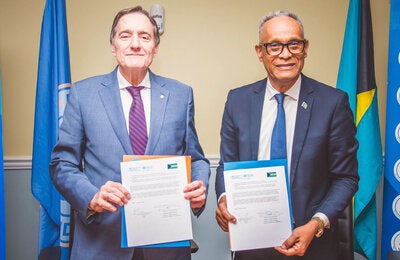
Bridgetown, Barbados, 15 June 2023 (PAHO/WHO) – Today, the 2023 Bridgetown Declaration on Noncommunicable Diseases (NCDs) and Mental Health was launched, to address some of the world’s deadliest diseases in Small Island Developing States, which are especially at risk. The declaration is a key outcome of the SIDS Ministerial Conference on Noncommunicable Diseases (NCDs) and Mental Health, running from 14 to 16 June, co-hosted by the World Health Organization (WHO), the Pan American Health Organization (PAHO) and the Government of Barbados.
SIDS are disproportionately impacted by NCDs – which cause 74% of all deaths globally – due to their reliance on imported food, commercial influences and the climate crisis. A new WHO report shows that 8 of the 15 countries with more than a 30% risk of premature death from cardiovascular disease, cancer, diabetes, or chronic respiratory disease are SIDS. The 10 countries with the highest obesity rates globally are all SIDS in the Pacific, where over 45% of adults live with obesity.
Mental health conditions are common in SIDS countries, affecting an estimated 15.2% of the population in the Caribbean and 11.2% of the population in the Pacific. People with mental health conditions face a higher risk of premature mortality, including from unaddressed physical health conditions and from suicide. Stigma, specialized staff shortages and the impact of climate change contribute to a challenging situation in SIDS that requires immediate attention.
The 2023 Bridgetown Declaration outlines bold steps to address the range of social, environmental, economic and commercial issues that lead to NCDs and mental health conditions. Developed through an inclusive process led ‘for’ and ‘by’ SIDS, the declaration highlights that NCDs and mental health conditions cannot be properly addressed without responding to the climate crisis.
“Bold action for our climate, good health, and wellbeing relies on redressing and reorganizing global financing to unlock billions in investment, while making it less punishing for developing countries to pay their debts,” said Her Excellency Mia Amor Mottley, Prime Minister of Barbados. “Funding for climate change adaptation and mitigation in the most vulnerable countries is also key, with noncommunicable diseases and mental health accounted for.”
"The challenges faced by Small Island Developing States are interconnected and multifaceted. Climate change, environmental degradation, social and economic inequalities, and the commercial determinants of health exacerbate the burden of NCDs and mental health conditions," said Dr Tedros Adhanom Ghebreyesus, WHO Director-General. "Despite their limited resources and geographical constraints, these nations have shown remarkable resilience in the face of adversity. Together, we must forge a path that is based on equity, resilience, and sustainability. We must strengthen health systems, enhance prevention and early detection measures, and prioritize the integration of NCD and mental health services into primary health care."
The Director-General also pledged that WHO would work to mobilize financial resources to develop climate resilient, environmentally sustainable health care facilities in the SIDS. WHO will also continue to advocate for ‘loss and damage’ funding for climate change adaptation and mitigation investments in lower income countries.
As part of agreeing the declaration, SIDS signed up to undertake a suite of actions, covering areas such as engaging all of society, accelerating implementation, securing investments, aligning across governments and accounting for progress. The conference also showcased specific commitments by SIDS on NCDs and mental health, including to improve access to mental health care in primary care facilities, update tobacco control legislation to cover e-cigarettes and vaping, and reduce populations’ salt and sugar intake. These commitments align with WHO’s ‘best buys’ – a set of cost-effective, evidence-based interventions to tackle NCDs.
The list of best buys was recently updated at the World Health Assembly in May to include secondary prevention for rheumatic fever, acute and long-term management of asthma and chronic obstructive pulmonary disease as well as several interventions for cervical, breast, colorectal, liver and childhood cancer, and the comprehensive treatment of cancer for those living with HIV.
“SIDS in the Americas remain overwhelmingly vulnerable to NCDs. This Ministerial Conference comes at a unique time and will be key to amplifying the voice and needs of SIDS, bringing NCDs and mental health to the forefront of our priority list,” said Dr Jarbas Barbosa, PAHO Director, and WHO Regional Director for the Americas. “To build on this momentum, we must act now. PAHO is ready to support accelerated implementation of interventions in our region, including mainstreaming care for these conditions into primary health services and taking advantage of innovations such as digital health tools.”
SIDS countries have a track record of driving global decision-making; their Port of Spain and SAMOA pathway agreements paved the way for the first-ever UN political declaration on NCDs in 2018.
The conference and the declaration will inform and shape forthcoming UN General Assembly High-Level Meetings on universal health coverage in September 2023 and on NCDs in 2025.



